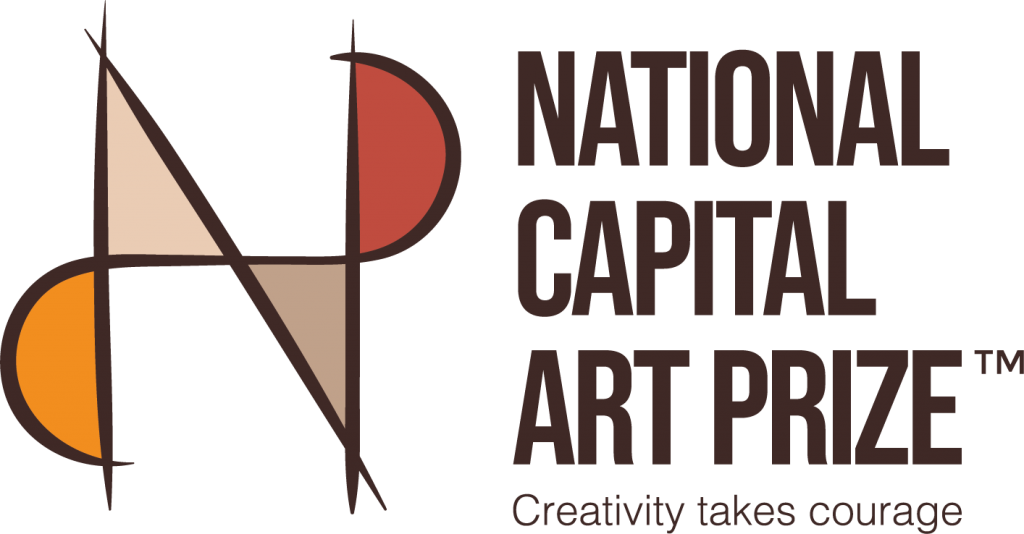Advice on creating a best practice art prize: National Capital Art Prize 2021


Arts Law is always pleased when we are approached by a competition organiser seeking best practice advice of its draft terms and conditions (Ts & Cs) for its competition. We had the pleasure of recently advising on the terms and conditions of The National Capital Art Prize 2021 – the first Australia-wide competition for paintings of any subject. As stated on its website, it “aims to ignite the passion and courage of artists across the country, many of whom lost the opportunity to display and sell their work during 2020 with its devastating impact on the arts sector”.
It’s wonderful to see that as a result of our advice The National Capital Art Prize 2021 has developed a fine example of best practice competition Ts & Cs. And Arts Law rates these Ts & Cs a perfect 5 out of 5 star rating!
Principal Solicitor, Trudie Sarks advised the organiser, the National Capital Art Prize Ltd, a Canberra based not-for-profit company. In particular, the competition organiser was wanting ‘Best Practice’ advice, that is, advice which ensures a fair treatment of artists. When providing Best Practice advice Arts Law aims to strike a fair balance between the competition organiser‘s needs and those of the entrants/artists.
So what does Arts Law consider when giving Best Practice advice and awarding a high rating? In particular, we look at the following:
- Does the entrant hold onto their copyright?
- Does the competition organiser require permission to use an entrant’s artwork (known as a ‘copyright licence’)? Whether there are sound parameters around such permission. For example, is the copyright licence for a reasonable period of time? Is the competition organiser limited to using use the artwork only for the purpose of promoting the competition and not for selling merchandise with the artwork on it?
- Does the competition organiser undertake to attribute the entrant whenever it uses the artwork?
- Does the competition organiser undertake not to make any changes to the artwork whenever it uses it?
The National Capital Art Prize implemented Arts Law’s advice and now has a great example of a best practice copyright term. Importantly, it is clearly stated that entrants hold on to their copyright. Essentially what National Capital Art Prize gets from finalists and winners is permission to use their artworks on a non-exclusive and non-commercial basis. It is good that it is not asking all entrants for a licence. What this all means is that National Capital Art Prize can reproduce the finalist and winning artworks to promote/advertise the prize, but it can’t commercialise the artworks. And, because it’s non-exclusive, finalists and winners are free to license their artworks to others. There are sensible time restrictions on this licence – finalists give the licence for 2 years, while winners grant it for perpetuity. This makes sense given that its reasonable that the competition organiser might want to refer to and reproduce the winning works in years to come.
Arts Law also advised National Capital Art Prize Ltd on how to improve its treatment of an entrant’s moral rights. Broadly speaking, an artist’s moral rights are the right to be credited and not falsely credited, and the right of integrity, meaning no changes to the artwork or other derogatory treatment of the artwork. While there was already a term stating that artists would be attributed whenever their work was exhibited, we advised that best practice would be to undertake to also attribute the artist when making copies of the artworks and to undertake to ensure their third-party promoters and partners do the same. In addition, with our assistance, National Capital Art Prize Ltd inserted a new term undertaking not to make any changes to artworks without an artist’s written consent and when making copies of an artwork, they would always reproduce the entire work rather than just a part of it.
We also advised National Capital Art Prize Ltd to include terms respecting any Indigenous Cultural or Intellectual Property (ICIP) in an artwork, which it has done. For example there is a term that artworks will not be displayed or used in a context which might be considered disrespectful of an Aboriginal or Torres Strait Islander community, and a term that appropriate attribution will be made of any ICIP in an artwork.
Regarding taking responsibility for an artwork, we advised that best practice is for a competition organiser to have insurance for the artworks while in its care and control – that is from the time of receipt of the artwork up until collection by the artist or the buyer if it is sold. The organiser appreciated our advice and has implemented a term which does this.
The National Capital Art Prize also updated its Ts & Cs to include a dispute clause, appropriate dealing with commission and clarified terms around eligibility, entry process, number of finalists, exhibition details and sales.
It was rewarding to assist on this matter and we are impressed that the commission and entry fees are used in the running of the National Capital Art Prize and are continuously reinvested in the Prize to encourage artistic endeavour into the future.
Arts Law was very impressed with National Capital Art Prize Ltd’s attitude, which clearly demonstrated its respect for artists. Arts Law’s engagement with National Capital Art Prize reflects Arts Law’s mission to empower artists in practice. Here Arts Law assisted an organisation with the end result being a positive impact on artists and their rights.
Diana Forrester, a Director of National Capital Art Prize Ltd said of Arts Law:
“We are committed to artist’s rights. We enjoyed the process of working with Arts Law and Trudie was particularly helpful in providing answers to all our questions and clear guidance to ensure the Ts & Cs for this competition demonstrate best practice.”
Arts Law often rates competition Ts & Cs and gives them a rating out of 5 stars. Our rating is done from the perspective of how fair the Ts & Cs are to artists. Arts Law is pleased to rate this competition a perfect 5 out of 5 stars. Congratulations to the National Capital Art Prize!





